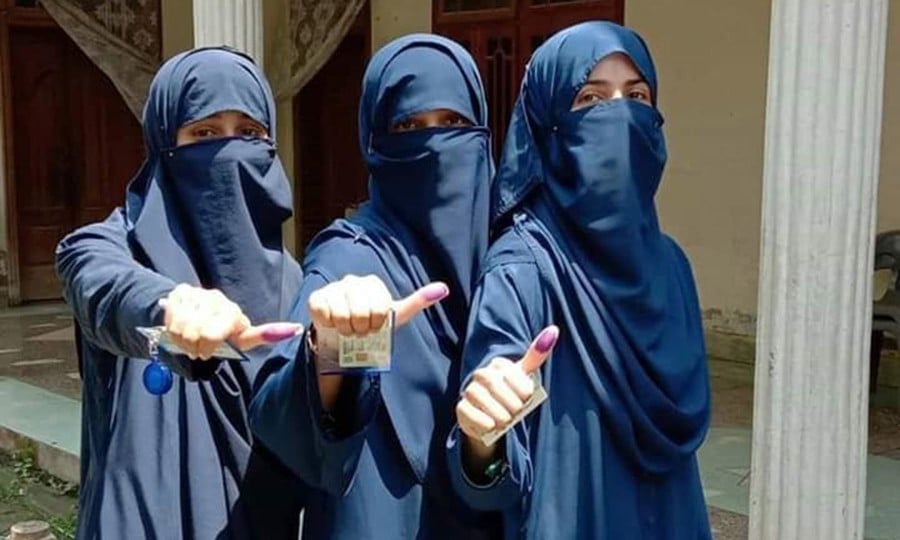
There is a long way to go before we can be assured of democratic elections that are free, fair and inclusive

The seven tribal districts, former Federally Administered Tribal Areas (FATA), of Khyber Pakhtunkhwa are on the path of a democratic transition. The transition was long overdue though. How may we interpret the result of election in the tribal districts?
In the 2018 election for Khyber Pakhtunkhwa Provincial Assembly, overall voter turnout was 45.11 percent of the total registered vote. Male and female voters turnout was 67.32 and 32.68 respectively. In the 2008 and 2013 elections for National Assembly, voter turnout from former FATA was 31 and 29.22 percent respectively. On July 20, election for 16 seats of Khyber Pakhtunkhwa Provincial Assembly was held in the recently-merged seven tribal districts.
According to the website of Election Commission of Pakistan (ECP), independents won 6 seats, the PTI 5, the JUI 3, the ANP and JI one each. Out of total registered votes of 2,801,831, only 735,920 votes were polled. The turnout of total votes polled was 26.27 percent. Turnout of male and female votes polled was 31.42 and 18.63 percent respectively.
The low turnout could possibly be due to various factors. First, public has general apathy towards election in Pakistan, one of the characteristics of the third world political culture. Citizenry has low expectations from the political system they live under. Public believes that its say either doesn’t count or it matters the least. Additionally, the vast majority of people could not be mobilised in the tribal districts.
Nationalist political voices such as the Awami National Party (ANP) and Pashtun Tahafuz Movement (PTM) did not have a level playing field to canvass for votes. Security threats, real or imagined, hampered their campaign. In the case of PTM, it was even worse. PTM is divided between those who believe that the rights movement should contest elections and those who argue that it should not take part in elections. Ali Wazir and Mohsin Dawar, the two incarcerated MNAs linked with PTM, could not participate in the election campaign. In the event of their participation, one could expect higher voter turnout owing to immense popularity of the duo among the masses from tribal districts especially North and South Waziristan.
Moreover, distance from polling stations and the fear of killing and injury from the bullet of security personnel -- in case of an untoward incident -- deployed at stations would have played due role in discouraging citizens to cast votes.
What may explain the PTI’s winning of 5 seats?
A couple of factors help make sense of it. As in the case of national elections 2018, there were allegations of rigging during the election in tribal districts. These allegations must have some truth. Elections have hardly, if ever, been free of rigging in our politically chequered history. More, environment for candidates contesting on the PTI’s ticket was conducive to wining. They did not face hostile environment that other candidates, especially from the ANP and the PTM, endured. Furthermore, that PTI is in power both in the province and the centre might have influenced the behaviour of voters to vote for the party.
Four seats were won by religious political parties -- three by the JUI-F and one by the JI. Historically, religious political parties have had a free hand in running election campaigns unlike their nationalist counterparts. This time too, religious political parties had a freer hand to run election campaign.
Independent candidates won 6 seats. A few of the winning candidates had close association with the PTM. In other instances of winning by the independent candidates, individuals have mattered more than party ideologies. It is more of a general voting pattern in the country whereby kinship, ethnicity and caste and personalities are more important considerations to vote for than ideology.
Also read: Women stand up to be counted
Although Free and Fair Election Network (FAFEN) appeared satisfied with the holding of election in the merged tribal districts, the election watchdog has its own limitations. FAFEN’s report has not taken into account what could be qualified as pre-poll rigging. As discussed above, all participating candidates and political parties did not have equal opportunity to mobilise public.
Letting the electorates choose who they want to elect cannot be possible without democratically held elections. Democratic elections are free, fair and all-inclusive. We still have a long way to go to have them!